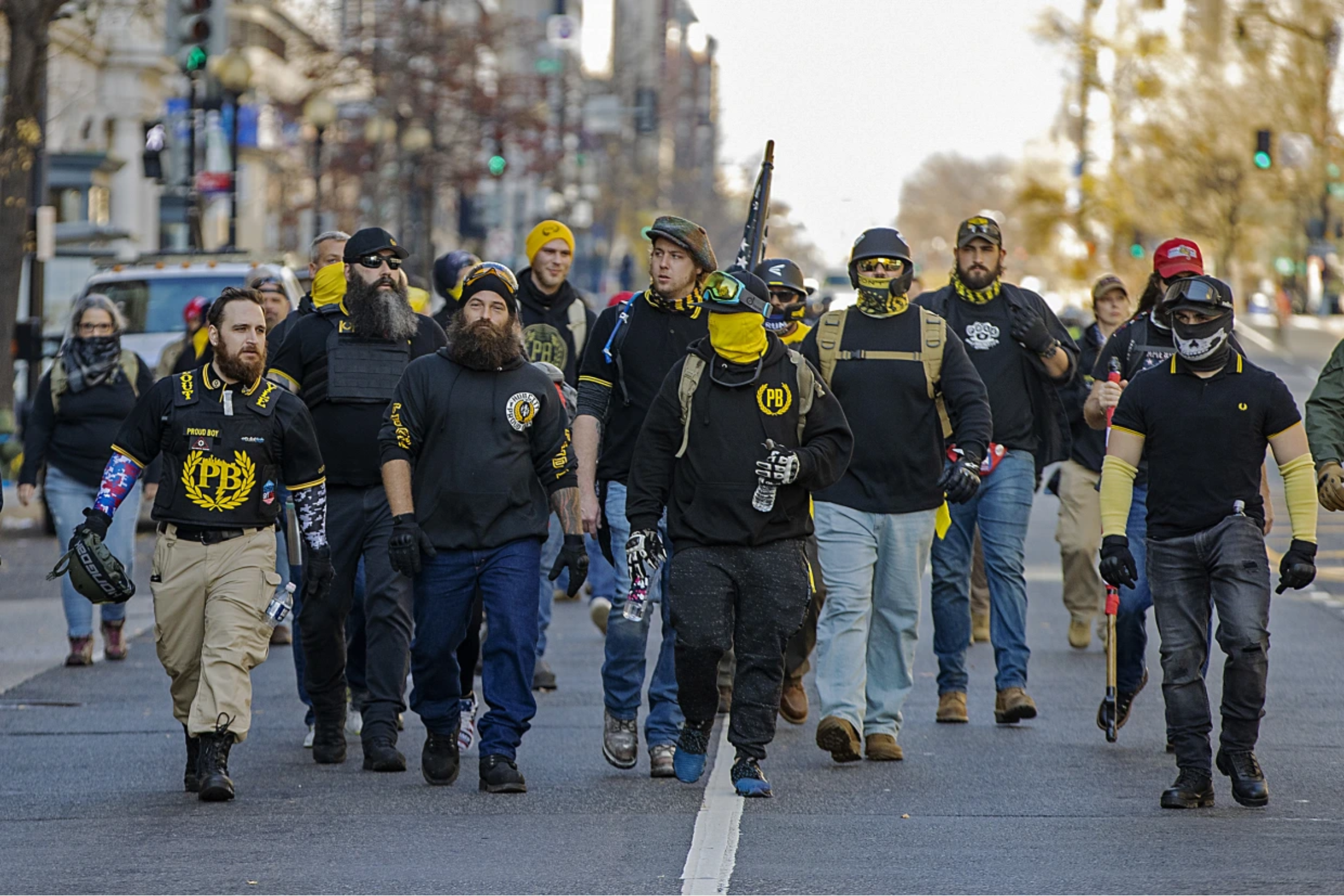Women’s Movements and ‘Backlash’
Grabbing Back Team
This summary is written to go alongside our podcast with Nancy Kelley on Feminism and Backlash. We hope it helpfully expands on some of what she says!
Feminist movements, since the 1960s (a.k.a. the ‘second wave’ - learn more about that here), have made some big changes in the world. Broadly speaking, they can be said to have been working and ‘organising against sex-based discrimination’. At least, that’s how sociologist Maxine Molyneux defined feminist movements in her article ‘Analysing women’s movements’ in 1998.
The achievements of these movements can basically be put into four categories for women and girls:
Economic empowerment - movements have helped women access their own source of money that isn’t dependent on them relying on men (like husbands, fathers, or brothers)
Access to education - think of people like Malala and Vee Khativu. Cause we know knowledge is power.
Making our voices heard - having women’s voices heard in public, from parliaments and politics to our daily lives on the street. This includes the rise of female politicians and lawmakers; helping make laws which reflect women’s lives and needs. Think Ruth Bader-Ginsburg, or AOC, or Julia Gillard. It also includes movements like ‘Our Streets Now’ which work to end public harassment.
Bodily autonomy - this means ending rape culture, and improving access to reproductive health services, including access to abortion, and the ability to choose sexual and romantic partners without negative pushback.
Admittedly, there’s still a long way to go with a lot of this stuff. With each of the above there’s situations where women don’t have access to all of these achievements. But recently we’ve seen a real pushback or ‘backlash’ to this progress in rights. In fact, there has been so much backlash to recent feminist movements that there is a whole body of academic literature on the topic.
Tessa Lewin, (a gender and international development researcher) defined backlash as: ‘a diffuse and powerful attack on the consensus of gender equality’. This means it’s a super broad bunch of groups, all different from each other, that together form a powerful mega-group that oppose all the gains we mentioned above.
Tessa says that gender backlash movements have 3 aims:
To ‘demonise and disempower those seeking to advance gender justice.’
To ‘re-valorise [i.e. idealise and idolise] traditional gender roles and stereotypes’ (Basically making the stereotype of 1950s gender roles - or at least the stereotype of white, American, middle-class, straight 1950s gender roles an ideal.)
To ‘co-opt existing processes and policies for gender in [international] development.’
Tessa Lewin
In sum, backlash against feminism comes from a broad range of groups, not all linked to each other directly. What does link them is their pushback against the gains made by women’s and feminist movements. combined they are having some really negative real consequences for women; especially poor, brown, queer, and trans women.
We’re going to give three examples of how you can spot backlash groups below.
Incels
‘A certain kind of sexless man: the kid who is convinced he is owed sex, and is enraged by the women who deprive him of it.’ - Amia Srinivisan, ‘Right to Sex’
Incels are men who often struggle to make sense of the world around them. They may struggle a lot socially, and they definitely struggle to socialise with women. They are single, often painfully so, and they hate what they see as the ‘modern woman’ for their lack of desire to have sex with them. At the heart of it, like all of us, they crave intimacy, and for me that actually generates a bit of sympathy for the individual.
BUT. Incels as a group are a powerful piece in the dangerous jigsaw puzzle that makes up Backlash movements today. Incels pin the blame for their lack of initimacy on feminism, and the independence feminism brings women. They think that modern feminism has turned women into sluts - who sleep around too readily with what they perceive as the ‘Alpha males’, but who refuse to sleep with incels.
A lot of incels were born on Reddit. Before their main forum was shut down on the site, it argued that men had a right to sex. Like a public health service. The issue with this? It fails to account for women’s autonomy. It refuses to consider women’s rights to say no.
Graff and Korolczuk argue there is a strong link between anti-gender movements and right-wing populism. We can see this with incels & the rise of groups like the ‘Proud Boys’ a group of men heavily implicated in the January 6th homegrown far-right terrorist attack on the US capitol building. A lot of these men follow similar arguments to Reddit self-proclaimed incels, and all share their view of women needing to follow traditional gender roles, including subservience to men, believing this will fix the world.
It’s worth stating; incels aren’t just your everyday misogynists. They hate women, but specifically they believe women have a requirement to have sex with them. That queer women are unnatural. And these extreme beliefs have driven more than one incel to commit horrific acts of violence against women. This violence has, tragically, ended in death in several instances. Read more here.
Religious Institutions and Abortion
The pushback against women’s bodily autonomy can be seen in the actions of the Catholic Church and right-wing, evangelical Christianity. These are two major Christian religious groups which are very different to each other in many ways. Despite this, both groups tend to be very socially conservative, they tend to have conservative views of women’s roles in the family, and heavily oppose women’s access to reproductive healthcare. This includes access to abortion, but also include access to things like contraceptive medication or condoms, or even access to a scientific and evidence-based education on reproduction.
Both religious groups have put a LOT of money into supporting political institutions and individuals who align with them on this issue. This can most famously be seen in the USA, and the way a lot of evangelical groups were heavily pro-Trump in his first and current election campaigns [read more here and here].
What is often less known is that these - usually American - groups have a global influence, and in particular they have been instrumental in cutting off access to reproductive healthcare for many women in Latin America. Initially the Catholic Church was the main group campaigning in this realm but recently evangelical groups have taken over in this space also. They had a major role to play in the introduction of Reagan’s ‘global gag rule’; a policy which prevented any foreign NGOs receiving any US government funding to provide any abortion-related services or advocating for abortion law reform in foreign countries. This policy was brought back heavily by Trump and is a key example in the ways that conservative religious support for him in America affected the bodily autonomy of women across the global South.
Now, it’s worth stating at this moment that we at Grabbing Back are not against religion, we’re not against any personal beliefs, and also that not everyone in a Catholic Church or evangelical church service is necessarily part of a gender backlash. What we’re trying to point out, rather, is how money and power flow from these specific large religious institutions as a form of backlash against gender. You could look to find similar attempts in other religious groups and in many non-religious institutions, however the impact of these two particular groups in the bodily autonomy space is at present unparalleled. In addition, this threat to women’s access to healthcare has repercussions on cultural discussions held around rape culture, and very often the two issues are intertwined; they both impact women’s ability to exist in their bodies freely.
T.E.R.F.s
Also known as ‘Gender Critical Feminists.’ They have different names depending on who you ask. What is certain is that this is a group of women, usually of a certain age (middle), usually of a certain class (middle), usually British, who feel that the existence of transgender people poses a threat to the gains they see the feminist movement having fought for in previous decades. They fight against what they call ‘gender ideology’; a term which hasn’t been precisely defined by an academic but which is vaguely seen to be written by famous feminist philosopher and non-binary person Judith Butler.
This group believe the sex you are given when you are born and a doctor looks at your genitals (aka ‘sex assigned at birth’) is the same thing as your gender.
Now, this all sounds pretty good and logical laid out like that. How could this group be a part of backlash, they seem to have nothing in common with the two groups above I hear you say.
Well, TERFs can actually be seen to ‘re-valorise’ gender roles, as Tessa Lewin put it. Now, they’d argue strongly they aren’t. In fact, this is a big part of ongoing feminist debates, as this group argue that trans people and allies are harming gender roles by assuming that anyone who wants to wear a dress is a trans women. However, when you look under the surface a lot of gender criticals aka TERFS are projecting quite traditional views of specific gender roles -albeit looking a little different to, say, their evangelical counterparts. This group basically harks back to the ‘good ole days’ of feminist movements in the 60’s and 70’s which were whiter, more middle-class, more based in the global North, and which fought for white, straight, middle-class women’s rights. Their work against trans people has worrying consequences not just for the trans community but all LGBT people, and those step outside their defined gender roles. They also have had harmful unseen impacts on cisgender women’s rights too as anyone who looks ‘too masculine’ could be assumed to be a trans and discriminated against by the group.
Final Thoughts
These groups are all super different to each other. A lot of individuals in one may not relate to members of another. However, when we step back, and look at the ways women’s and LGBT people’s lives have been negatively impacted, the threats facing rights hard-won in recent decades, and the barriers to gaining and cementing these rights globally, the backlash or anti-gender movement can be found.
We learned loads of these ideas from the theory that we’ve included in this months’ reading list - go check it out, it’s well worth it.



